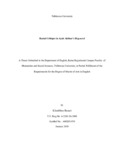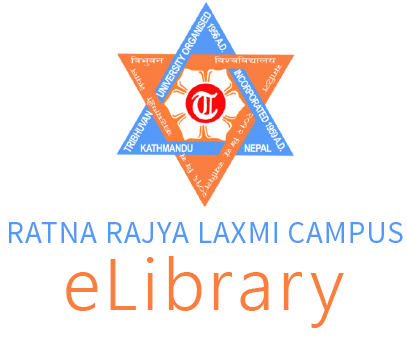Please use this identifier to cite or link to this item:
http://eibrary.ratnarajyalaxmicampus.edu.np:8080/handle/123456789/50| Title: | Racial Critique in Ayab Akthar’s Disgraced |
| Authors: | Adhikari, Yadab Basnet, Khushbhoo |
| Keywords: | M.A. English |
| Abstract: | This research entitled “Racial Critique in Ayab Akthar’s Disgraced” attempt to cast light on how race and racism has caused discrimination and struggle for identity of Muslims in America. The thesis studies how Muslims are discriminated and racial victims and their sufferings in post 9/11 America. The research proves that racial identity of a person can bring irrevocable changes and crisis in life and there is domination of the basis of identity. Racism includes prejudice, discrimination or hatred directed at someone because of their color, ethnicity or national origin. The concept of racism and inequality exists regardless of any group in 21st century. The traditional views associated with racism are more focused on religion. Islamophobia is new method of racism which denotes hatred and negative feelings associated to religion. Racism is revealed through people’s actions as well as their attitudes and can be reflected in system and institutions. Disgraced is mainly about the protagonist’s complicated life due to his racial identity, the racial segregation of Muslim and Islamophobia in American society in the aftermath of 9/11. Living amid American Whites, hiding his identity, Amir, the male protagonist finds himself in complex situation due to which he comes to realize that what he has been doing to alienate from own race and identity is good for nothing. His continuous efforts to adopt the American lifestyle or whatever that needs to be American do not help him to be like them. He, despite his all his attempts, is denied to be accepted in all walks of lives- personally as well as professionally. This propels him to grow sort of rage and continue to hold his tribal identity, identity of birth and education. Hence, the American Amir bitter experience as Muslim makes him sympathize his roots and culture and adopt behavior of his ancestors. |
| URI: | http://202.45.147.228:8080/handle/123456789/50 |
| Appears in Collections: | Theses |
Files in This Item:
| File | Description | Size | Format | |
|---|---|---|---|---|
| 400295_Basnet_Khushbhoo.pdf | 359.34 kB | Adobe PDF |  View/Open |
Items in DSpace are protected by copyright, with all rights reserved, unless otherwise indicated.
